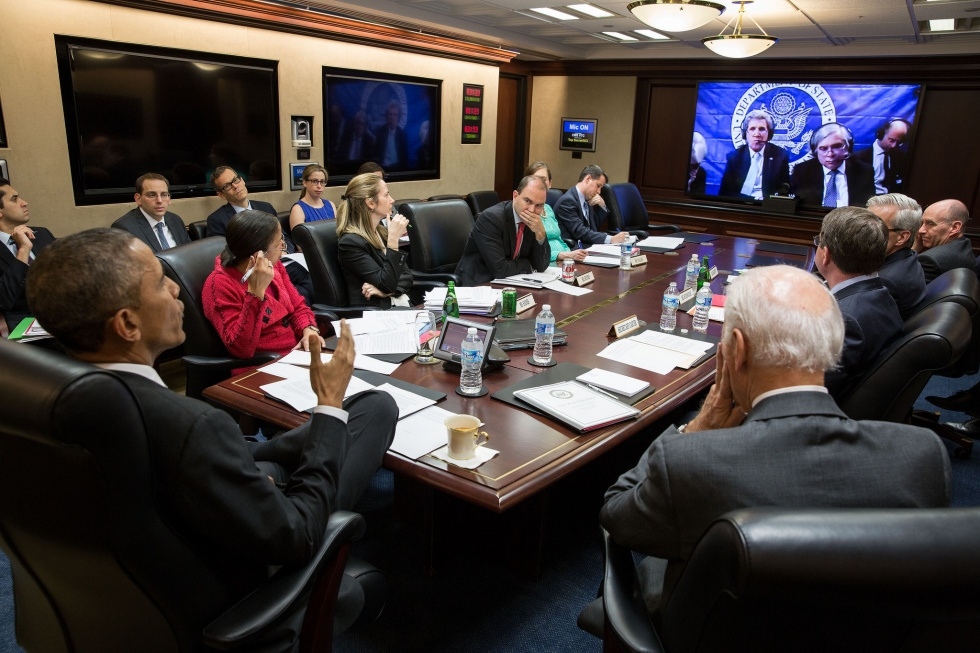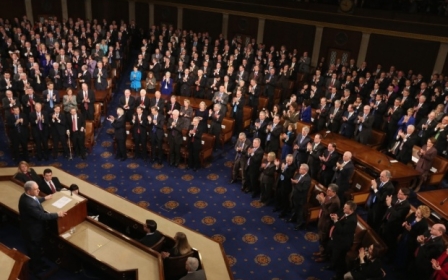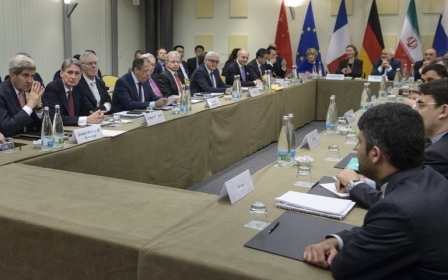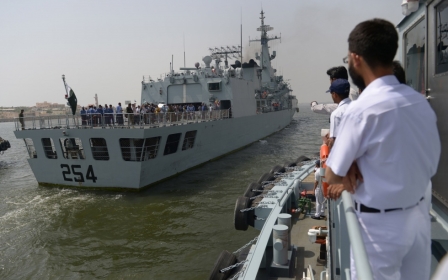US cannot threaten Iran while negotiating with it

Ever since negotiations over Iran’s nuclear program began in October 2013 between the administration of President Hassan Rouhani and P5+1 - the five permanent members of the United Nations Security Council plus Germany - the opposition to the negotiations and resolving the standoff between the two sides has been doing what it can to prevent a comprehensive nuclear agreement. Israel, the Arab nations of the Middle East, their lobbies in Washington, US Congress, and many other forces have been willing to go to any length to prevent the diplomatic resolution of one of the most important and complex international issues.
Inviting Benjamin Netanyahu to speak before a joint session of Congress, writing a letter by 47 Republican Senators to Iranian leaders telling them that the next US administration may not necessarily accept the nuclear agreement, advocating bombing of Iran’s nuclear sites by Senator Tom Cotton (R-AK), pressuring President Obama to put the final agreement to vote in Congress, and inviting Maryam Rajavi to testify in Congress, are all various facets of the same utmost attempt by the opposition to the agreement.
In particular, inviting Rajavi, a leader of Mujahedin-e Khalgh (MEK), an Iranian terrorist cult that supported the regime of Saddam Hussein and its eight-year war of aggression against Iran, and has boasted in the past of killing 69,000 Iranian soldiers that were defending their nation against the Iraqi army, was meant to anger and provoke the Iranian leaders to end the negotiations.
In the Middle East one must view the war of aggression by Saudi Arabia against Yemen as the Saudis attempt to stop the nuclear negotiations by provoking Iran to intervene in that war. Under the pretext of “defending” itself, Saudi Arabia’s bombing of Yemen has killed more than 1,400 people and injured over 6,000, with another 300,000 leaving their homes and taking refuge elsewhere. The United States has supported the aggression, providing logistical and intelligence support to Saudi Arabia.
Iran’s Supreme Leader Ayatollah Ali Khamenei leads a dictatorship, but he is not a fool, and will not be easily provoked. He has acted in a way that if the nuclear negotiations fail, it will be the United States that will be blamed. Aside from condemning the Saudis attack on Yemen, Khamenei has not done anything because he is well aware that human rights organisations, intellectuals, and antiwar activists will protest the bombing of Yemen by cluster bombs supplied to Saudi Arabia by the United States, and committing war crimes.
The attempt by Israel, Saudi Arabia, and their allies in the United States to prevent successful completion of the nuclear negotiations is not surprising. What is surprising is that although the Obama administration is pursuing the nuclear agreement with Iran, it does not appear to be committed to what the negotiations and the agreement imply. The President, Vice President Joe Biden, Secretary of State John Kerry, Defence Secretary Ashton Carter, and deputy national security advisor Benjamin Rhodes have been saying that the military option for dealing with Iran is still on the table. This is not what is expected of a side that is interested in the diplomatic resolution of the nuclear dispute.
Although other provocations have not been effective so far, the US military threats may ultimately provoke ultimately Khamenei. In a speech on May 6 Khamenei said:
“I do not understand the logic of negotiations under the shadow of threats. We should negotiate under threats? It is like holding a sword over our heads [and telling us to negotiate]. The Iranian nation rejects negotiations under [military] threats. Why are they threatening us? Why do they [the American leaders] insist on wrongdoings? He [the President] says if we do not do this or that, we [the US] may attack us… I do not support negotiations in the shadow of threats.”
Khamenei added that, in response to the George W. Bush administration threats to attack Iran, he had declared on 22 September 2007 that, “The era of attacking [a nation] without any consequences is over. You [President Bush] cannot say that we [the US] will attack Iran and then leave; no, you will be trapped and we will pursue you [to retaliate and punish you]. The Iranian nation will pursue those who attack Iran. We will pursue them.”
Khamenei added that in order for the economic sanctions imposed on Iran to be lifted, Iran needs to negotiate with P5+1, but that the US needs the negotiations even more. “Iran will survive even with sanctions,” Khamenei said, “but the only achievement of the US [during the negotiations] would be to claim that it forced Iran to the negotiation table to impose its will on Iran [if they fail].”
In the same speech, not only did Khamenei not block further negotiations, but also told Iran’s diplomats to continue them, keeping in mind Iran’s red lines. He said that he rejects humiliating and threatening Iran, adding that the most crippling economic sanctions in history that were imposed on Iran would have forced any other nation to collapse, but Iran did not.
The problem that the Obama administration is facing is overcoming the propaganda of the opposition to the negotiations in the United States and in the Middle East by Saudi Arabia, Israel, and their allies. To do so, it constantly refers to Iran as a threat, declares that the military option is still on the table, and professes its full support for Israel and other US allies in that region. While it is true that talking about the military option is presumably meant to “tame” the opposition, the credibility of the threat is doubtful, given the current conditions in the Middle East. Khamenei does not appear for now to take the threats seriously, and if this is true, then the usefulness of the threat is also doubtful.
The Obama administration reiterates constantly that Iran has made many concessions, without gaining anything significant in return; that the inspection regime for Iran’s nuclear and even non- nuclear sites will be permanently in place, and that not all the economic sanctions will be lifted; only some of them will be removed over time.
It is not clear that such a policy of appeasement of the opposition will satisfy it. But, if continued, it may eventually convince Khamenei that nuclear negotiations with P5+1 are not useful, and that the United States is continuing to pursue Iraqisation and Libyaisation of Iran.
Khamenei has suggested that if an honourable and fair agreement with P5+1 is concluded, then, that will open the door to negotiations between Iran and the United States over other issues of mutual interest. Is it rational or wise to respond to such a proclamation by military threats? Is it rational to demand Iran not to have even defensive weapons, while selling tens of billions of dollars’ worth of most advanced offensive weapons (such as F-35 fighters) to Iran’s adversaries in that region? Can one morally defend the United States’ double standard in supporting its allies in the region that commit crimes against people? Does the double standard present a democratic image of the United States as a supporter of respect for human rights?
Often, tension between two nations, which is based on misunderstanding by each side of what the other side has said, leads to destructive wars. Unnecessary use of military threats at a time when nuclear negotiations with Iran are reaching their conclusion may result in the failure of the diplomatic efforts, and pave the way for another long war in the region, this time against Iran. Is this what the United States want?
- Akbar Ganji is an Iranian journalist and writer. He has been described as "Iran's preeminent political dissident", and a "wildly popular pro-democracy journalist" who has crossed press censorship "red lines" regularly. A supporter of the Islamic revolution as a youth, he became disenchanted in the mid-1990s and served time in Tehran's Evin Prison from 2001 to 2006 after publishing a series of stories on the murder of dissident authors known as the Chain Murders of Iran. While in prison he issued a manifesto which established him as the first "prominent dissident, believing Muslim and former revolutionary" to call for a replacement of Iran's theocratic system with "a democracy".
This article was translated by Ali N. Babaei
Photo: The situation room during Iran nuclear nuclear negotiations (AFP)
New MEE newsletter: Jerusalem Dispatch
Sign up to get the latest insights and analysis on Israel-Palestine, alongside Turkey Unpacked and other MEE newsletters
Middle East Eye delivers independent and unrivalled coverage and analysis of the Middle East, North Africa and beyond. To learn more about republishing this content and the associated fees, please fill out this form. More about MEE can be found here.





